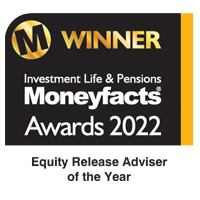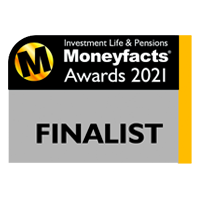After ten years in their London flat, Matthew and Georgina are starting to think about applying for Equity Release. At just 58 years old, this is not something they want to rush into. But, with only 90 years left to run on their lease, is time against them? Is it a case of now or never?
A lot of my London clients live in leasehold flats. And, like Matthew and Georgina, many want to know how this affects their ability to take Equity Release.
The good news is that owning a leasehold property is not in itself a barrier to ER. Lenders will consider you.
However, as Matthew and Georgina have correctly guessed, the length of the lease is a consideration.

Is time on your side?
Any lender’s main concern will be the saleability of the property they are lending against. They need to know that their loan will be repaid – and, for the property to be easy to sell, it must be readily mortgageable.
With 90 years on the lease, a future buyer should be able to get a mortgage on Matthew and Georgina’s flat. But most lenders will not offer a mortgage on a property whose lease has 75 years or less left to run. This matters because the ER provider will need to know that future buyers can easily get a mortgage.
Criteria varies between lenders – but ultimately, they’ll be taking into account the age of the youngest borrower. So, the younger you are when you apply, the longer the lease must be. To really be on the safe side, you’d have at least 125 years left to run on your lease – but that is not set in stone, and it’s always worth exploring the market with an Independent Adviser even if your lease is shorter than this.
Extending a lease
Even if they decide against ER, Matthew and Georgina’s property will need to be sold at some point in the future – and a short lease will affect its saleability. They may therefore decide to ask their landlord about extending the lease.
It can take about six months to do this, and it can be an expensive process, with most – if not all – of the cost borne by the leaseholder. But it should increase the value of their property, and also improve their chances of taking ER in the future.
If this is something that you are considering, the Leasehold Advisory Service’s (LAS) lease extension calculator (www.lease-advice.org/calculator) will give you an idea of the costs involved.
Share of freehold
While owning a share of the freehold on a property may appear to make it more attractive to ER lenders, some conditions will still apply. For example, the lender will want to see that the freehold share is set up correctly and that all maintenance and service charges are up to date. Again, their primary concern is that the property they are lending against will be easy to sell in the future.
Equally, should the beneficiaries of their borrower’s estate want to keep the property, the lender will want to know that they could easily raise a mortgage against it in order to repay the equity release.
Talk to an adviser
Every case is individual and the complexities of leaseholds and freehold shares can be mind-boggling. A good ER adviser will be able to guide you through the maze. If you’d like to find out more, please get in touch.
mwade@accessequityrelease.com; 020 3840 5011












